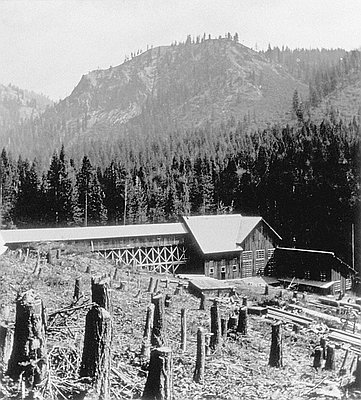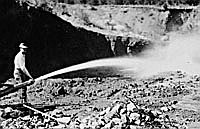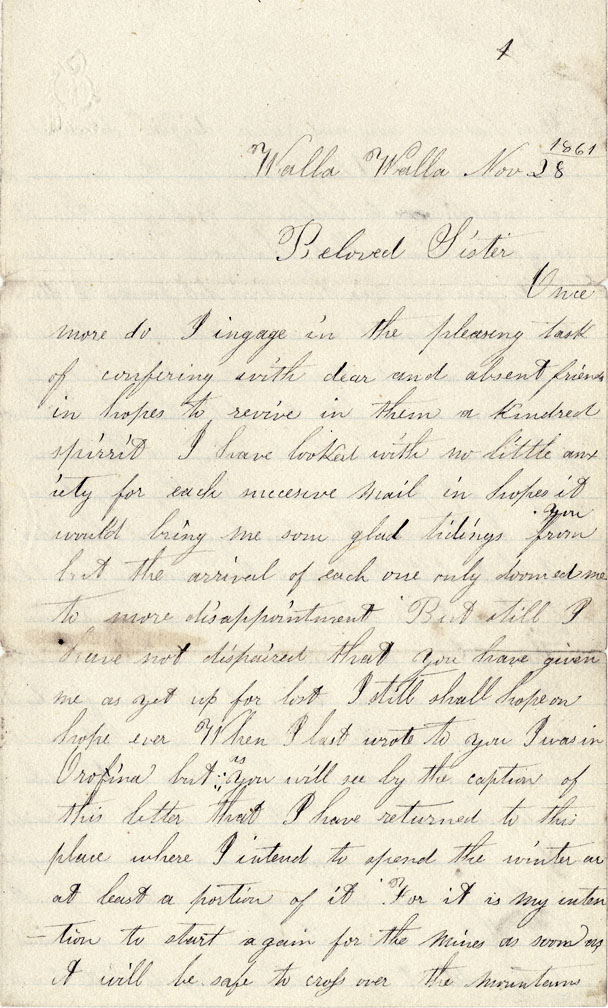- Catalog No. —
- Mss 2417
- Date —
- November 28, 1861
- Era —
- 1846-1880 (Treaties, Civil War, and Immigration)
- Themes —
- Environment and Natural Resources, Oregon Trail and Resettlement, Race, Ethnicity, and Nationality, Trade, Business, Industry, and the Economy
- Credits —
- Oregon Historical Society
- Regions —
- Northeast
- Author —
- James Mullany
From James Mullany to his Sister Mary, 1861
This letter was written by James Mullany to his sister Mary on November 28, 1861. He discusses his experience as a miner in Idaho during the early 1860s, as well as his opinion of the Civil War then raging in the east.
James Mullany was born in New York around 1837 to Irish parents. He was in San Francisco by 1856 and came to Oregon soon thereafter, living in McMinnville from about 1858 to 1860. Although he boarded with a McMinnville family for two years, he refused to tell them that he was Catholic, writing to his sister in August 1860 that there was “a strong prejudice against them [Catholics] here on account of the people here thinking it was the Priests that caused the Indian war three or four years ago.”
Mullany left McMinnville in late 1860 or 1861 to take part in some of the first gold rushes of the inland Northwest, heading first for the Orofino mining district in present-day Idaho. He describes some of the hardships that he and several other miners went through while prospecting in the mountainous region.
Like most miners, Mullany always had his ear to the ground, ready to move on at the slightest hint of a new discovery, which came in the fall of 1861 when gold was discovered along the Salmon River. Mullany hired a man to stake a claim in the district, fronting him four months of provisions in exchange for half of what he got from the claim.
Mullany ends the letter with a brief reference to the Civil War. As a Republican, he makes it clear that he had no sympathy for the rebellion, but he also had little desire to join the Union army. Many men headed west in the early 1860s hoping to strike it rich in the newly discovered mines of Idaho and eastern Oregon, but also hoping to avoid conscription.
Mullany apparently did not strike it rich in the gold mines of Idaho as his personal estate is valued at only $500 in the 1870 census for Idaho Territory. At this time he was working as a carpenter in Boise City and had married a woman named Caroline, an Oregonian born around 1850. In the 1870 census, James and Caroline are listed with one child, a son named William. Ten years later, they were still living in Boise City, but their family had grown to six children, four boys and two girls.
Further Reading:
Bright, Verne. “Blue Mountain Eldorados: Auburn, 1861.” Oregon Historical Quarterly 62, 1961: 213-236.
Trimble, William Joseph. The Mining Advance into the Inland Empire. Bulletin of the University of Wisconsin 638, 1914.
Written by Cain Allen, © Oregon Historical Society, 2005.
Related Historical Records
-
Gold Mine at Cornucopia, c. 1888
The photograph, probably taken by Martin M. Hazeltine of Baker City in the late 1880s, shows a stamp mill used to process gold-bearing ore near Cornucopia. The gold …

-
Gold!
In 1848, two years after Lindsay Applegate traveled through the Rogue River Valley, the discovery of gold in Sutter’s Mill, California, brought prospectors through southwest Oregon. In 1850 …

